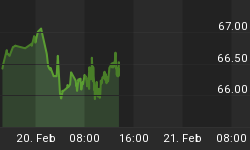Let me propose a thought experiment. Are we in a global environment where food prices can drive energy prices rather than the more typical relationship where energy prices tend to drive food prices? Key oil producing and/or middle eastern countries spend disproportionate amounts of household income on food.

Source: FAO, USDA, CIA Factbook - 2010
Consequently, residents in such places are heavily exposed to price increases in basic food-stuffs. Does this matter? More specifically, does this create a higher risk of civil unrest? Apparently the answer is yes and it happens predictictably once prices move beyond a certain level. According to research by Marco Lagi, Karla Z. Bertrand and Yaneer Bar-Yam (The Food Crises and Political Instability in North Africa and the Middle East, New England Complex Systems Institute) - "the timing of violent protests in North Africa and the Middle East in 2011 as well as earlier riots in 2008 coincides with large peaks in global food prices. We identify a specific food price threshold above which protests become likely. These observations are consistent with a hypothesis that high global food prices are a precipitating condition for social unrest. ...More specifically, food riots occur above a threshold of the FAO price index of 210."
Where is the FAO index now? 213. It would appear that unrest in the middle east is set to continue...
... and if it continues and/or grows, does this mean higher oil prices are ahead as investors are forced to price in even higher risk premiums and importing nations deal with potential and perhaps real supply dislocations?
















